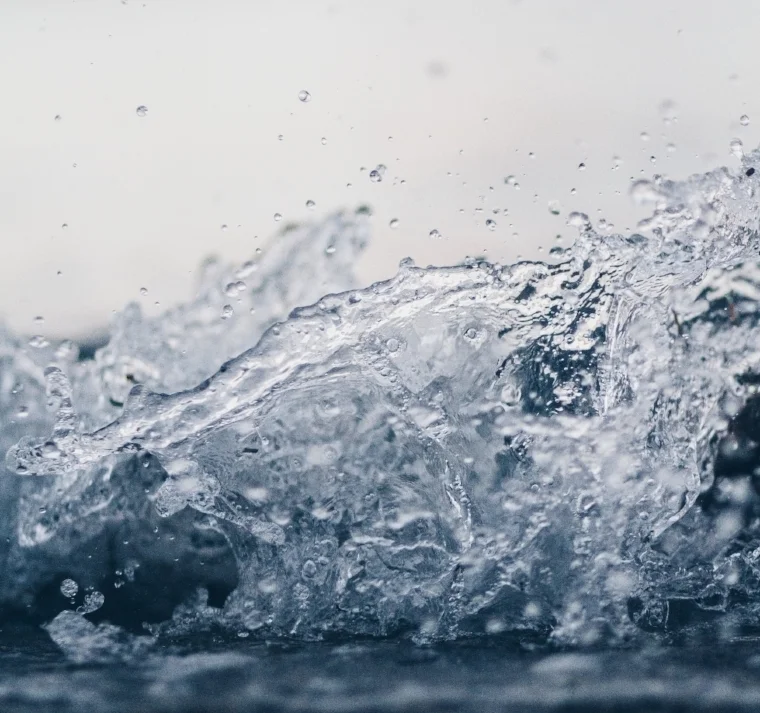It's no secret that water is an important part of a healthy lifestyle. You certainly already know that we all need water to live: humans, animals, plants, and insects all rely on H20 to stay feeling healthy, hydrated, alert and feeling well overall. With this in mind, it makes total sense why our doctors, our mothers, and even social media memes are constantly reminding us to drink plenty of water every day. These reminders are about more than just feeling good and hydrated during your day to day life - they are also about keeping yourself healthy in a way only water can do. That's right; water is important not because we need it to live, but also because it has a serious hand in preventing chronic disease and other issues. If you're not fully aware of all that water does for us, you aren't alone. In fact, most people don't know how important water is in our life until they're without it, making it even more imperative to drink plenty of good, clean water. Whether you're young and in excellent health or older and in need of some useful wellness tips, learning the importance of water in our life overall and for preventing chronic disease can be beneficial.
Why Dehydration is a Serious Matter
Water is one of the single most important components of a healthy body. Your entire body craves water, from your cells to your tissues to every single organ you have. In fact, your body needs water to complete seemingly simple tasks like maintain a normal temperature, keep your joints lubricated, remove waste, and maintain proper digestion. When you are not drinking enough water, then, it can be a serious problem for your body as a whole. You may have experienced dehydration before - dizziness or lightheadedness, nausea, headache, confusion, sleepiness or overwhelming fatigue, and dry mouth. More extreme symptoms include no tears when crying, fainting, extreme thirst, little or no urine, or extremely dark urine. You should never wait to see these symptoms. The longer you go without proper hydration, the more danger your body is in.
When dehydrated, your body is more at risk for the following complications:
Heat Injury: If your body is already in a state of dehydration, you are at high risk for heat injury. This means if you are out exercising vigorously or out in the sun and sweating heavily, you are at high risk for heat injury. This can manifest in a number of ways, all of which are unpleasant and can cause long-term damage. Side effects include mild heat cramps, nausea or vomiting, heat exhaustion, or even a heatstroke, which can be life-threatening.
Kidney and Urinary Issues: If you find yourself dehydrated often, it could eventually lead to kidney issues, such as kidney stones or kidney failure, or urinary tract infections. Each of these issues is serious in its own right, but if you allow the issue to reach kidney failure, you could do yourself some long-term damage that could be life-threatening.
Seizures: Another life-threatening side-effect of dehydration is seizures. These can happen when your electrolytes, such as sodium and potassium, are out of balance. Electrolytes help carry electrical signals from cell to cell to help them work properly. If electrolytes fall out of balance, some messages can get mixed up, leading to issues like involuntary muscle contractions and spasms or total loss of consciousness. If you are out when this happens, falling unconscious paired with the muscle contractions could lead to serious head or other injuries.
Low Blood Volume Shock (or Hypovolemic Shock): The most dangerous side-effect of dehydration on this list is low blood volume shock, also known as hypovolemic shock. Being the most serious, it can also be life-threatening depending on the overall health of the individual. Hypovolemic shock occurs when low blood volume leads to a drop in the amount of oxygen in your body. When this happens, your body can go into a type of shock that could lead to serious issues if you don't receive immediate medical attention.
There is no doubt these complications can be alarming, which is why it is so important to act preventatively when it comes to dehydration and be knowledgable about the importance of water in our life. Never wait to see if you feel dehydrated. Drink water moderately throughout the day, every day to feel your best. Ironically, you must also be careful of drinking too much water at once, as this can lead to loss of electrolytes and something known as water intoxication.
Preventing Chronic Disease: The Conditions Water Combats
Now that you know a bit more about the dangers of dehydration, it certainly elevates the importance of water. But what about the prevention of chronic disease? We've already mentioned how water plays a major role in this endeavor, but what are the chronic diseases adequate hydration saves you from? Check out the following as reported in the article, The Importance of Good Hydration for the Prevention of Chronic Diseases by MDs Friedrich Manz and Andreas Wentz:
Urolithiasis: This condition is characterized by the buildup of stones in the kidney, bladder, and/or the urethra, also referred to as the urinary tract. These stones are caused by an increased excretion of certain components in the urine such as calcium, oxalate, urate, xanthine, phosphate, and cystine. Without water, the likelihood of these components appearing in urine is increased, which can lead to other complications. When you've been drinking enough water, however, many of these harmful components are regularly and smoothly flushed out, keeping your urine clear and healthy.
Bladder/Colon Cancer: Drinking water regularly can help prevent and lower the risk of colon and bladder cancer because frequent urination and defecation are viewed as protective factors against these issues. When your system is cleaned out consistently, it helps protect your body from harmful toxins that can lead to serious disease.
Constipation: Constipation is pretty commonly affected by lack of water in the system. Though water does not always stop constipation (as this condition is affected by a number of other factors), it does help keep you regular. If you're already drinking water regularly, chances are that your risk for constipation will be lowered.
Hypertension: In different animals, mild to moderate dehydration was shown to affect renal sodium excretion. In diabetic humans, lower urine and sodium excretion rates are often associated with higher blood pressure during the day and a sudden fall in blood pressure at night. Water helps your system flush out harmful components, which can lower the risk of and prevent hypertension in some people.
Obesity: Drinking water regularly can help increase the number of calories burned, which is a major proponent of weight loss. In addition, when you drink water, you are likely to feel less hungry (because you will feel full), which can lead to eating less. In addition, drinking enough water can lead to more energy and alertness, which gives you the energy you need to exercise more often. Finally, certain healthy foods like melons, cucumbers, tomatoes, celery, carrots, and more are a great source of water and nutrients, giving you hydration and health in one!
It may seem too simple at times, but keeping yourself healthy can really be as easy as drinking the recommended amount of water each day and being knowledgable of the importance of water in our life. Of course, different people will have to deal with different issues, but you can never go wrong when you drink water throughout the day. Keep your body working well and feeling great by drinking water whenever you can. If you aren't sure if you're drinking enough water daily, DexaFit can help with scans and other services to let you know what's going on inside your body.













